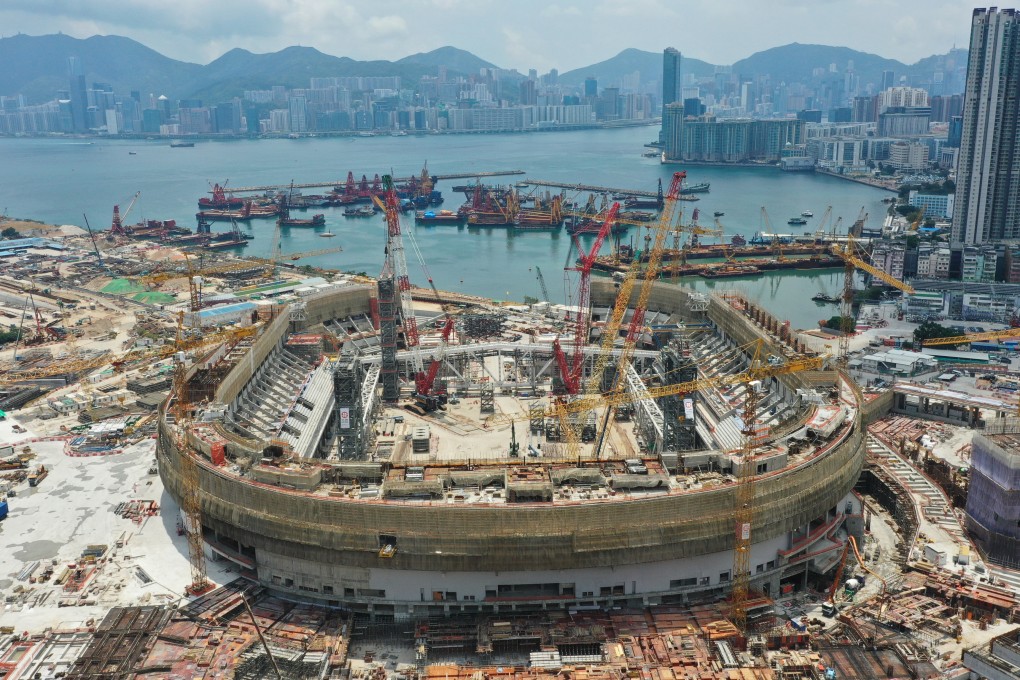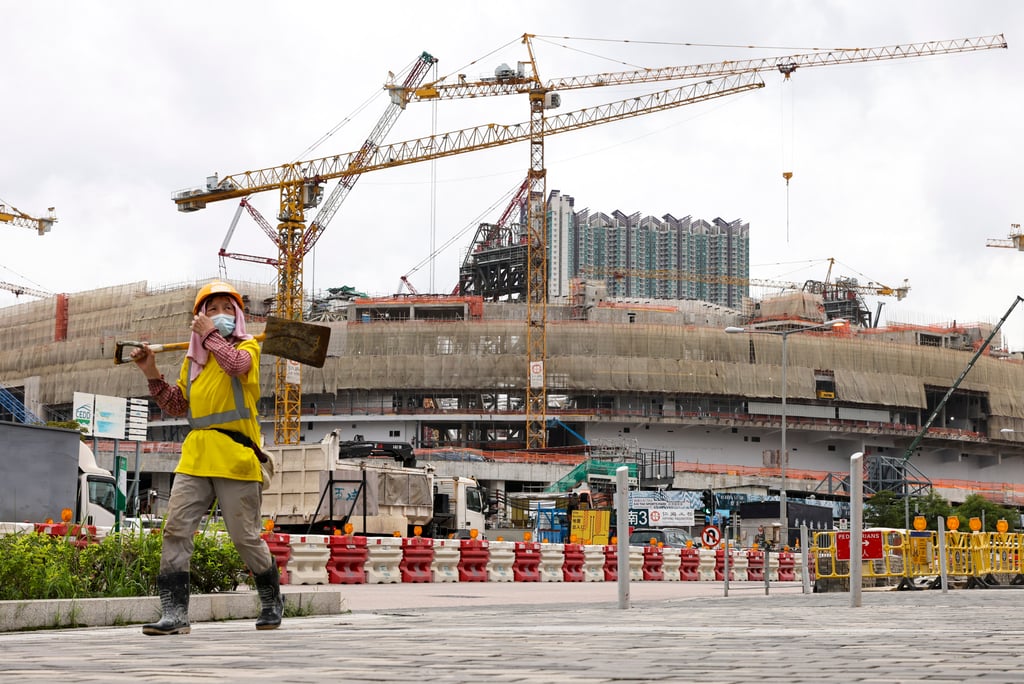Kai Tak Sports Park’s opening delayed until 2024 as pandemic hits construction work
- Commissioner of Sports Yeung Tak-keung confirms delays, citing interruptions to shipments of materials
- It could mean continued need for Hong Kong Stadium – but Yeung remains confident new park will be ready for 2025 National Games

The Kai Tak Sports Park will not be ready for its planned opening date after delays in construction work, with the main stadium not set to open until 2024, the Commissioner of Sports has confirmed.
Yeung Tak-keung said on Tuesday that the Covid-19 pandemic had caused major time lags in the supply of construction materials, and that opening the HK$30 billion facility at the former Kai Tak Airport site, scheduled for 2023, would have to be moved back.
“Many of the shipments have been affected by the pandemic, with most of the materials for construction having to be imported,” Yeung said.
“Our latest estimation is that the 5,000-seat public sports ground will open in late 2023, while construction of the main stadium and the indoor sport centre will not be completed until mid and late 2024 respectively.”

With a seating capacity of 50,000, the main stadium boasts a retractable roof and flexible pitch surface that can host a wide range of events in any weather.